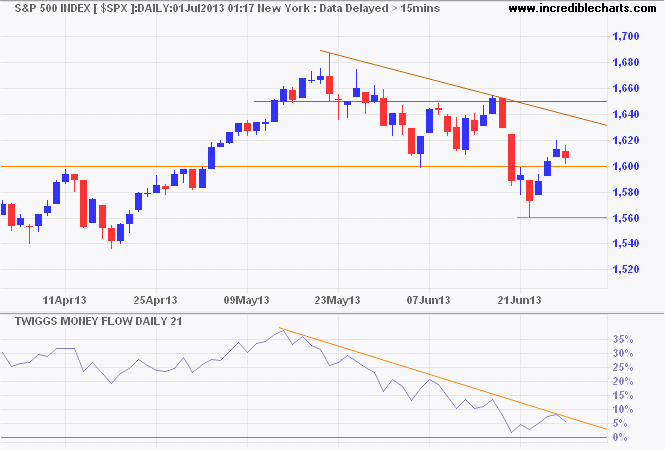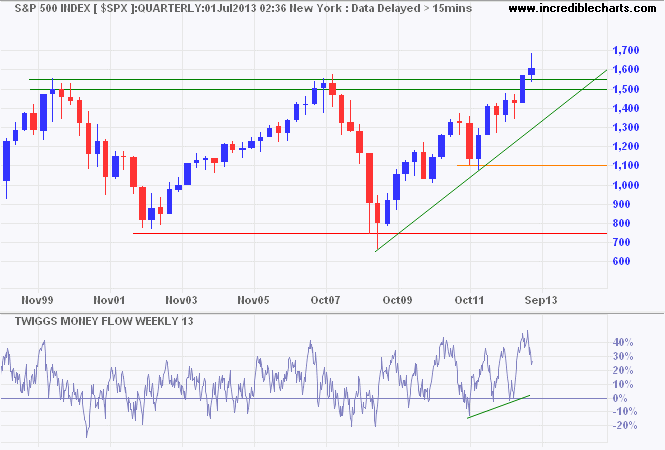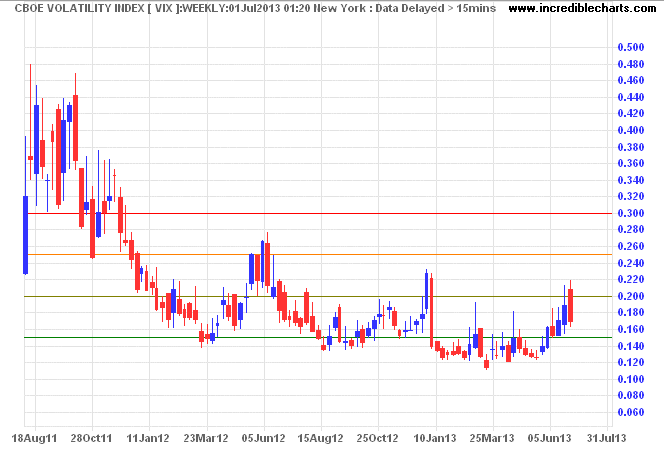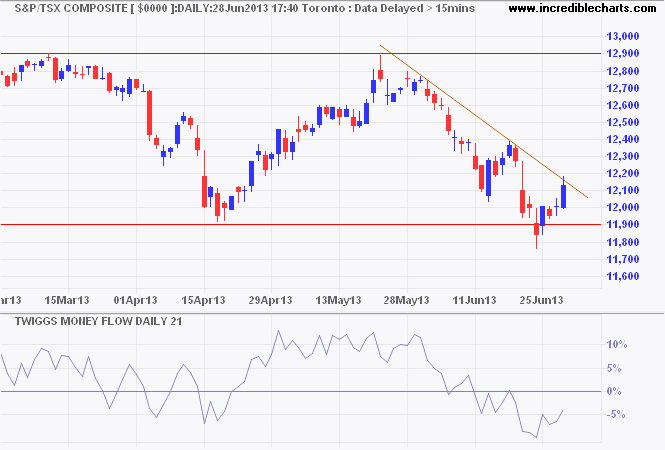S&P500 falters while TSX rises
By Colin Twiggs
July 1st, 2013 4:30 am EDT (6:30 pm AET)
These extracts from my trading diary are for educational purposes. Any advice contained therein is provided for the general information of readers and does not have regard to any particular person's investment objectives, financial situation or needs and must not be construed as advice to buy, sell, hold or otherwise deal with any securities or other investments. Accordingly, no reader should act on the basis of any information contained therein without first having consulted a suitably qualified financial advisor. Full terms and conditions can be found at Terms of Use.
The S&P 500 rally appears to be faltering. Reversal below 1600 would suggest another decline, with a target of 1500*. Breach of support at 1560 would confirm, while reversal of 21-day Twiggs Money Flow below zero would strengthen the signal.

The June quarter ended with the S&P 500 above its new support level at 1550. Respect of the zero line by 13-week Twiggs Money Flow indicates a healthy up-trend, but the tall shadow (or wick as some call it) on the latest candle suggests otherwise. Reversal below 1500 would warn of a correction to the rising trendline, around 1400.

Breakout of VIX above 25 would warn of increased market risk.

A false break below primary support on the TSX Composite index was followed by a rally above 12000. Follow-through above the descending trendline would suggest that the correction is over, but a 21-day Twiggs Money Flow peak below zero would warn of selling pressure — and reversal below 11900 would confirm the primary down-trend.

I offer to all investors this simple idea, trade what is less good for what is better. It will improve your returns. Continually improve your portfolio, and do not be married to any ideas. The idea of relative improvement of the portfolio has aided me greatly in portfolio management. It is easy to swap bond for bond, and relatively easy to trade stock for stock. Asset allocation decisions are more difficult.
~ David Merkel, Risk Control Upfront
